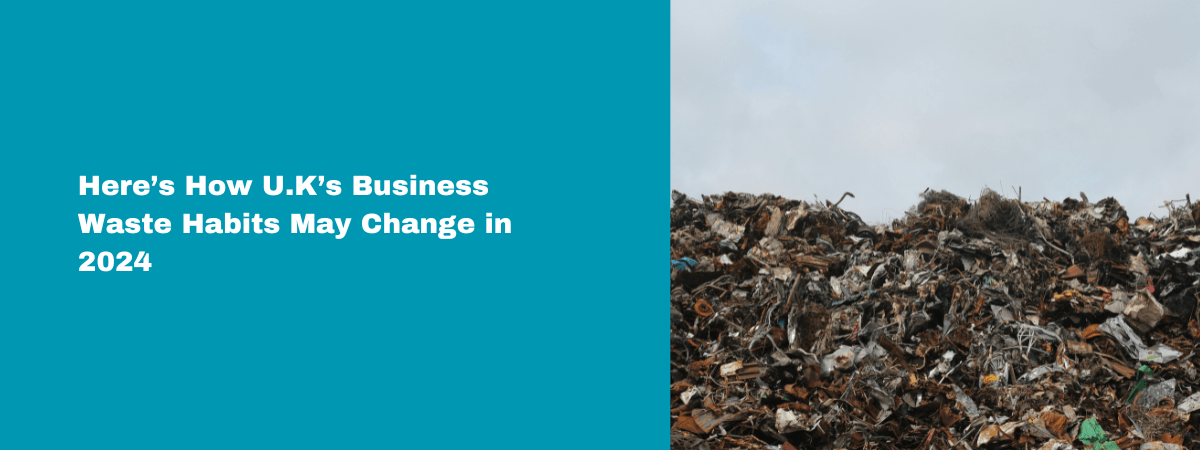The term ‘climate crisis’ has become a proper part of the UK vocabulary, with not an hour going by on local, national, and international news without mention of the term. It’s beginning to seep into our lives daily because of the things we do and the things we buy. Businesses, too, aren’t exempt from the pressure to ensure their products and services aren’t heavily impacting the climate crisis. Some industries can be more careful than others, but habits are changing. 2024 will be no different. Businesses will be expected to continue making positive changes, and some of those changes will be in relation to waste. Let’s take a look at what these trends are, but first, how they may change.
Changing Trends
UK domestic waste has become more focused on recycling across the last decade, thanks to changing laws and attitudes to waste. More people are recycling, but people still aren’t sure how their waste gets disposed of, or what is the correct state to leave their recycling in. This makes some people apprehensive to recycle. While nobody can be sure the levels of incorrect recycling, there are some studies to suggest blind spots. For example, in June 2019, Beyond the Box reported that, in a survey of 2,000 people, 55% were unsure about what can and can not be recycled. No matter the amount of jargon included on the packaging of a product, some things just aren’t working. And that might work into some of the trends coming this year, which we’ll touch on later.
Another trend for 2023 was a desire for greater legislative actions. This itself will become more apparent in 2024, when Extended Producer Responsibility (EPR) legislation gets closer, with a 2025 date set. This year will see businesses take it more seriously, and plans for compliance be made in preparation for next year.
What are the Business Waste Habits to Expect in 2024?
2024 is due to be a year of increased change in the waste sector. Here are a few things that we expect to see change and evolve in the next 12 months.
Preparation for the EPR
The EPR – Extended Producer Responsibility – law is coming into place in 2025. So that means people are going to start preparing this year. The law is centred around placing the responsibility of waste management on producers of materials, with the grand aim of encouraging companies to create more sustainable packaging and products. This will see businesses begin to change their own habits when manufacturing, and in turn, see the end user increase the frequency they use their recycling services.
Emphasis on Simpler Recycling
Potentially linked to the above, Simpler Recycling is a new initiative with the goal of making recycling more straight forward for people both domestically and commercially. The initiative gives councils instructions to collect all recyclable materials from properties, not just a certain few. This straight-forward way of dealing with the subject should encourage people to recycle in a more broad way, taking away uncertainty of what goes where.
Changes to Landfill Costs
April 2024, landfill tax will increase, making it less sustainable financially to continually use landfill as a way of disposing of waste. The exploration of recycling even more waste, and using waste collection providers that have alternative disposal techniques, is a way to avoid costly bills and help the environment.
Reduction in Single Use Materials
There are already strong measures in place to ban single use materials from being used in a number of industries – see the ban on certain cartons in the take-away industry. For example, wet wipes are due to be banned across England from 2024, as a part of the new Plan for Water scheme. Legislation like this will continue to come into practice as the country comes to terms with the need to be more sustainable.
How Direct365 are Leading the Way with Commercial Waste Management
Direct365 have years of experience working with small businesses to ensure their waste is dealt with properly. Our recycling service is regular and affordable, while our general waste service only works with providers that use legal waste disposal services. And as legislation changes, we’ll always ensure that our service keeps up with the requirements.
To discuss further about how we may be able to help your business with waste management, fill out the form below!

